What are the types of cheese and how do they differ?
Cheese is one of the oldest food products, which production has started 10 thousand years ago. Cheese production since then has developed greatly and many new species have emerged. Today, around 4,000 different types of cheese are produced all over the world. Cheese can be divided into many categories based on the raw materials which it is produced from, the production method itself, the ripening period or the texture. Each of these categories has its own sub-categories, which describe the specifics of particular cheeses. Based on the method of cheese production, it can be divided into four categories: acidic, vinegar, rennet and acid-rennet cheese.
Acid cheese
This type of cheese is produced naturally, in the the milk fermentation process and through the presence of another acid. The process of producing acid cheese begins with milk pasteurization. The next step is to cool the milk down to instillation temperature, which is a process during which milk is enriched with bacteria that change its pH to 4.5. After 8 hours an acid clot is created, the time period can, however, be proloned in order to obtain a more aromatic product. The fourth stage is to create a clot be means of heating and slicing. As a result of heating, the clot begins to shrink, the seed and whey is created. In order to give it proper shape, the seed is then poured into the forms and pressed. Cheese form this category include i.a. curd and paneer.
Whey cheese
This group is not very large. The production method is based on heating whey, which causes the whey proteins that form the base of the cheese to be precipitated. Interestingly, curd cheese is made from whey left over from cheese production. The most popular cheese from this category is ricotta.
Rennet cheese
This is the most numerous group, and as the name suggests, the clot is created through the rennet impact. Rennet is added to the milk, which causes coagulation of milk protein resulting in the creation of clot. The clot is, then, shredded and the whey gets separated. The next stage is moulding and pressing of the cheese, which separates whey, creates the structure and forms the skin. When these steps are completed, the cheese is salted. The longest stage of production for rennet cheeses is maturation. This can last from a few days to even a few years. During ripening, this cheese undergoes chemical, microbiological and physical processes. The ripening conditions depend on the type of cheese. It is the ripening time that affects the texture of the cheese, creating the next categories. Rennet cheeses can be divided into soft, semi-hard and hard cheeses. Soft cheeses are all synovial, blue and short-ripening (from 10 days to a month). We also have fresh cheese that matures only for a few days, such as burrata or raccoon cheese. These ripen from the surface to the inside. Semi-hard cheese ripens from 2 to 12 months. An example of a semi-hard cheese is Iberico and Raclette. Any fondue cheese is also semi-hard, i.e. gouda, gruyère and emmentaler. Hard cheese forms the largest group and mainly concerns long-ripened Italian cheese. The maturity period lasts from a year to even a few years. It has a crispy and hard texture. They mature under anaerobic conditions. An example of rennet cheese is grana padano
Acid and rennet cheese
As the name suggests, it is a combination of two production methods. In this case, the clot is formed by the use of lactic acid and rennet. The coagulation process is faster than for acidic cheese. The consistency of the cheese is more runny compared to acid cheese.
Discover our products
Become our partner

phone
+ 48 605 590 599
+ 48 693 550 771
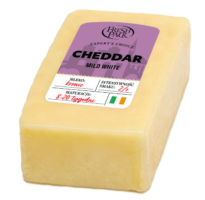 CHEDDAR WHITE CHEESE
CHEDDAR WHITE CHEESE 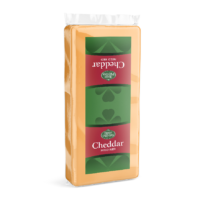 CHEDDAR MILD RED CHEESE (block)
CHEDDAR MILD RED CHEESE (block) 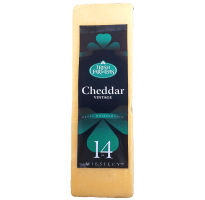 CHEDDAR VINTAGE CHEESE (block)
CHEDDAR VINTAGE CHEESE (block) 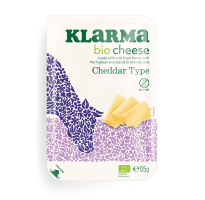 BIO CHEESE Cheddar
BIO CHEESE Cheddar 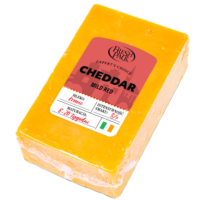 CHEDDAR RED MILD CHEESE
CHEDDAR RED MILD CHEESE 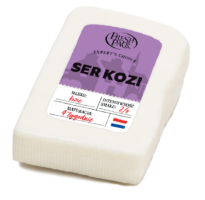 CHEVRETTE GOAT CHEESE
CHEVRETTE GOAT CHEESE 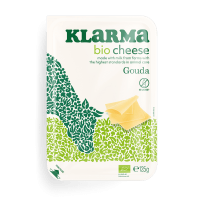 BIO CHEESE Gouda
BIO CHEESE Gouda 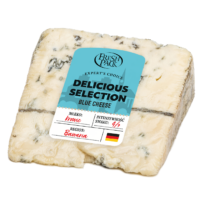 DELICIOUS SELECTION BLUE CHEESE
DELICIOUS SELECTION BLUE CHEESE 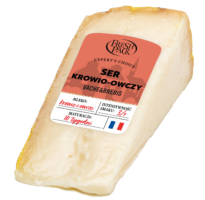 COW AND SHEEP CHEESE VACHE & BREBIS PELOTARI
COW AND SHEEP CHEESE VACHE & BREBIS PELOTARI 


